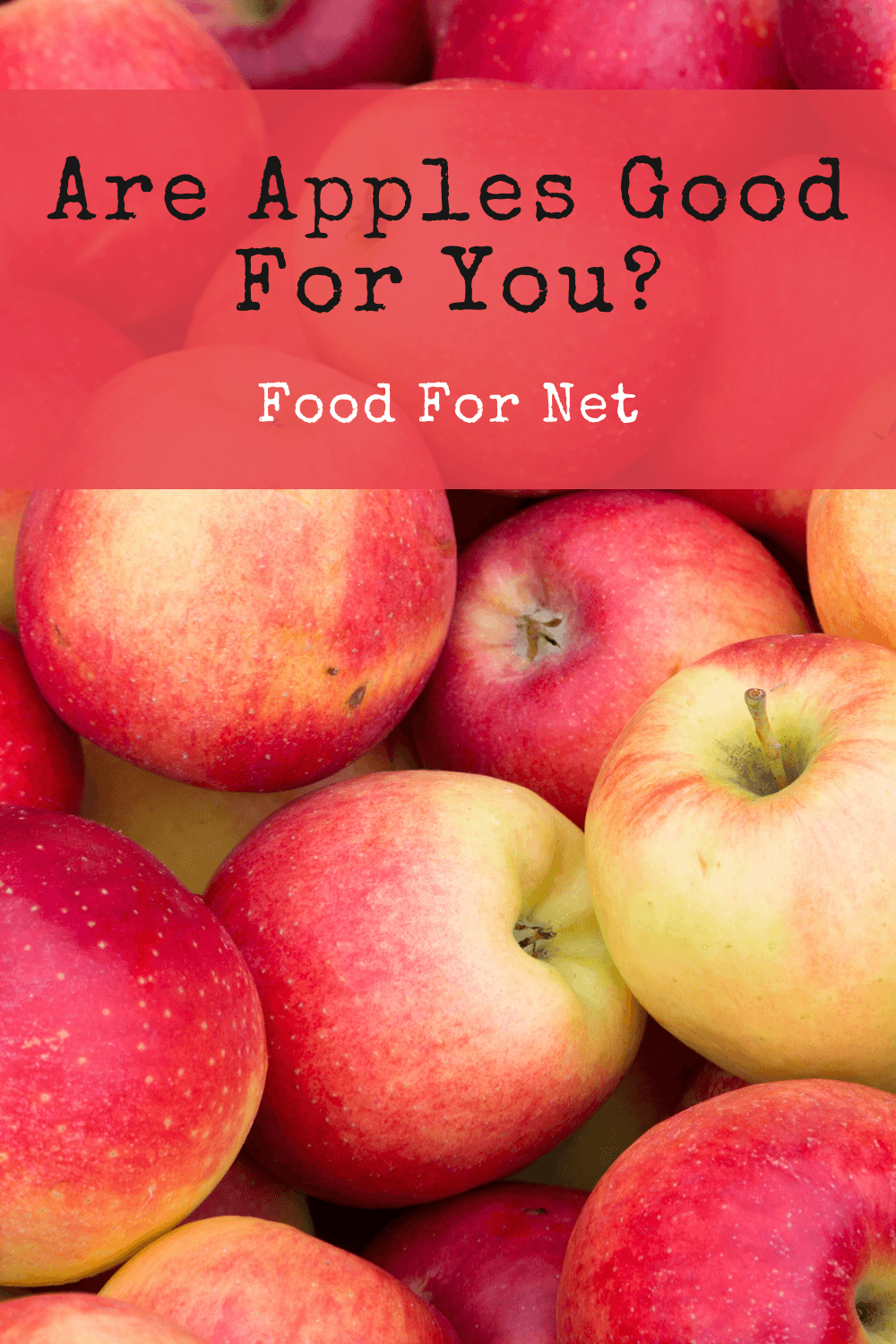
Apples are incredibly popular, which isn’t at all surprising. After all, they’re an inexpensive fruit that’s easy to eat, has a decent shelf life, and is a portable snack. There’s even that classic saying – “An apple a day keeps the doctor away”. That begs the question though, are apples good for you?
After all, apples don’t feature on superfood lists in the way that blueberries, goji berries, and pomegranates do. Does this mean that they’re less powerful?
Well, they might be less powerful in some ways, but don’t put aside the humble apple just yet. Apples still have many benefits and contain plenty of important compounds. Don’t forget that they can be used in many delicious ways too, like making apple pie, applesauce, apple juice, or even apple brandy.
Apple lovers have plenty of options too, including apple of the month clubs that will ship fresh apples straight to your door. You can also easily freeze apples if you end up with too many of them.
Are Apples Good For You??
- Benefits Of Apples
- The Risks Of Apples
- How Many Apples Can You Eat In A Day?
- Should You Eat Apple Skin?
- Which Types Of Apples Are Best?
- Why Aren’t Apples Superfruits?
- Final Thoughts
Benefits Of Apples
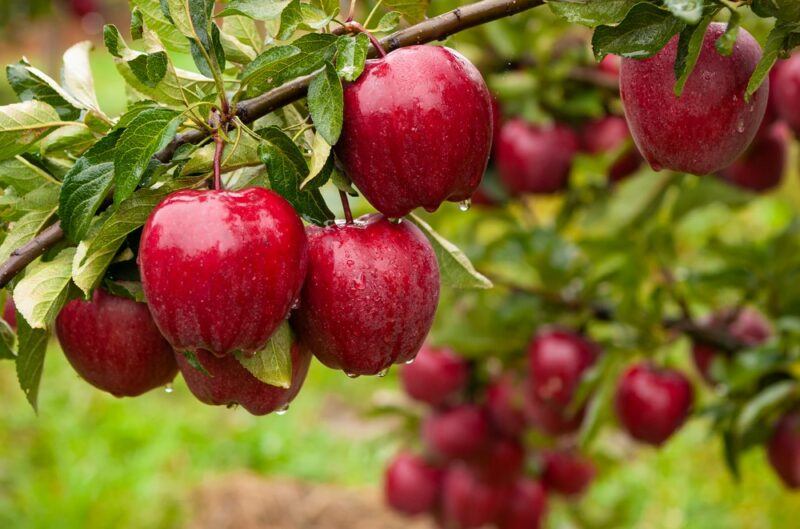
The Antioxidants
Apples aren’t famous for antioxidants in the way that blueberries and cranberries are. Yet, studies show that they do have considerable antioxidant effects. They contain many important plant-based compounds, including chlorogenic acid, catechin, and quercetin.
Each of these can have many different effects throughout your body, including decreasing inflammation and even lowering the risk of some diseases, including diabetes, heart disease, and asthma.
There’s a related benefit here too – how practical and inexpensive apples are.
Antioxidant rich foods are often pricey. Many of them don’t have a long shelf life either, so you need to use them soon after purchasing. Those features can be frustrating, especially if your budget is stretched thin.
In contrast, apples tend to be inexpensive. They also last close to a week if you leave them on the counter. Put them in the pantry and they should last a couple of weeks. They’ll last even longer in the fridge.
These features make apples one of the easiest ways to increase your antioxidant intake.
The Fiber Content
Fiber isn’t as exciting as antioxidants, but it is absolutely essential. After all, fiber is what keeps your digestive system functioning well. If you don’t get enough fiber, you’re going to have issues with irregular bowel movements, fluctuations in your blood sugar levels, and increased hunger.
Not getting enough fiber might even increase your risk of heart disease and diabetes. Apples can help here, as a medium apple (with skin!) can give you more than 4 grams of fiber.
Some of this is a type of soluble fiber called pectin. This fiber doesn’t just help with your digestion either. It also acts as a prebiotic, meaning that it’s a source of food for the bacteria in your gut.
The fiber in apples makes them an excellent choice for blood sugar control too. This allows you to enjoy apples even if you’ve been diagnosed with diabetes.
A Good Source Of Nutrients
Apples mightn’t be as famous for nutrients as ingredients like dark leafy greens or legumes, but don’t write them off just yet. They’re still a good source of vitamin C, while also providing you with potassium, vitamin K, various B vitamins, and copper.
These nutrients all add to your daily needs, helping to keep you fit and healthy. After all, having an insufficient intake of any of these nutrients is likely to cause harm in the long term.
They’re Tried And True
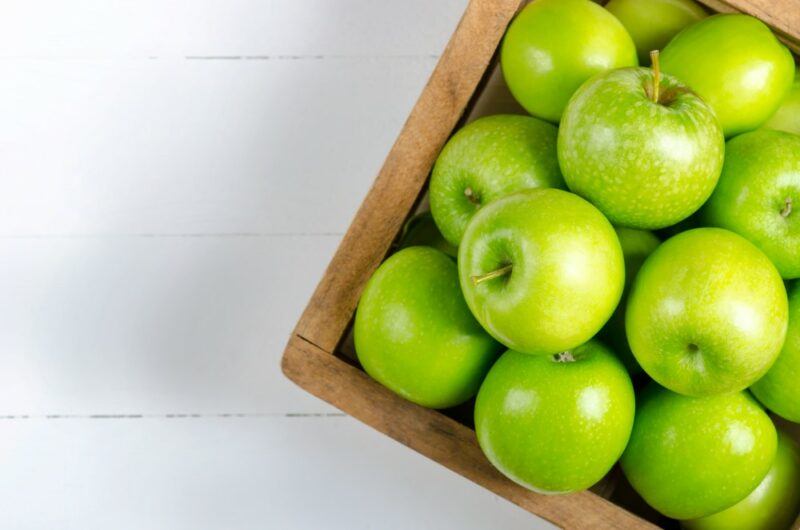
Apples are cultivated throughout the world, with more than 7,500 different known cultivars. Global production is now upwards of 80 million tons, which shows just how much we all love apples.
Apples have a long history as well, to the point that they may have been domesticated 4,000 years ago, if not longer. This long history makes apples a safe and reliable fruit, one that we have countless ways to use.
This is much more appealing than an obscure fruit that might offer considerable health benefits, but could also put our health at risk. At least with apples, we know exactly what we’re getting.
They Can Promote Weight Loss
Want an easy weight loss snack? What could be better than an apple?
Apples have a fantastic combination of features here – they’re sweet and delicious, are relatively low in calories, and contain plenty of fiber and water. The fiber and water help to make apples filling. This is why having an apple is a great way to decrease your cravings for sweet and unhealthy foods (like candy).
Plus, it’s hard to eat an apple quickly. All that fiber slows you down. That’s an important feature too, as eating slowly helps you to feel full and to appreciate your food.
Some people find that having an apple as an appetizer before a meal works wonders for weight loss. Doing so knocks the edge off your appetite, making it easier to keep your portions in check.
If apples aren’t filling enough on their own, try spreading apple slices with peanut butter. The extra protein from the peanut butter helps to give you a well-rounded snack, one that tastes delicious as well.
May Improve Your Heart Health
Apples can help with your heart health in multiple ways, starting with their fiber content. For one thing, fiber helps to decrease blood pressure. The potassium in apples helps with this effect as well. Lowering your blood pressure is important, as high blood pressure is a key risk factor for heart disease.
The antioxidants in apples are relevant too, as antioxidants may help to improve multiple heart disease risk factors. This includes decreasing the risk of LDL oxidation.
The Risks Of Apples
Apples are a safe ingredient, one that many of us snack on time and time again. Yet, despite this, there are a few potential issues to think about.
They’re High In Fructose

All fruits contain some fructose, but apples and pears are particularly high in this type of sugar. Fructose can be a problem for people with irritable bowel syndrome, as fructose is considered a FODMAP and can increase symptoms of the condition.
Most people on low FODMAP diets choose to avoid apples entirely.
However, you might be able to include some green apples on your diet, if you keep the portion sizes very low (only around 20 grams or so).
Digestive Side Effects
If you eat too many apples, you might get symptoms like stomach cramps, bloating, and constipation. These come from the fiber.
As we mentioned earlier, fiber is incredibly important. Plus, most of us don’t get enough of it. Despite this, there is an upper limit to fiber intake as well, often around 70 grams per day. Consuming more fiber than that can lead to some serious side effects.
You’d need to eat more than a dozen apples to hit that amount. Of course, you’re not just getting fiber from apples. Plant-based foods all contain some fiber, often a decent amount. This means that if your diet is already rich in plant-based foods, you might already be consuming all the fiber that you need.
Also, side effects from fiber don’t just happen when you’ve had too much.
You’ll also see them from changes in your fiber intake. For example, someone who focuses heavily on processed food might get stomach cramps from eating two apples.
Such side effects are a sign to take it slowly. Increase your fiber a little at a time and make sure to drink plenty of water as you do so.
Pesticide Residues
Apples regularly feature on the EWG’s Dirty Dozen list, often near the top. This list looks at the amount of pesticide residues that remain on fruit when you buy them from the store.
A particularly concerning one is diphenylamine. This helps to protect the skins of the apples while they’re being stored. Apple growers argue that the chemical is entirely safe. However, there’s plenty of debate about whether this is the case or not.
This chemical is a good reason to consider organic apples. Indeed, if you only buy a few organic fruits, it’s worth putting apples on the top of that list.
The Wax
Apples naturally have a wax coating, which is often removed during apple processing. To protect apples and keep them looking good, companies often add on their own artificial wax coating to replace the natural one.
This is why apples in the grocery store look shiny and aren’t easily scratched. The process isn’t a new one. In fact, the first patent for waxing fruit was back in 1922.
The wax on fruit has been carefully designed to make sure that it doesn’t harm humans at all. As with diphenylamine, however, there are debates about whether adding wax to fruit is actually a good idea. What do these waxes do to our health in the long term and should we be eating them?
Some consumers prefer to avoid the wax altogether. Doing so means focusing on companies that don’t wax their fruits (local farmer’s markets are a fantastic option) or peeling apples before eating them.
Unfortunately, the wax is water repellant, so you can’t simply wash it off.
How Many Apples Can You Eat In A Day?
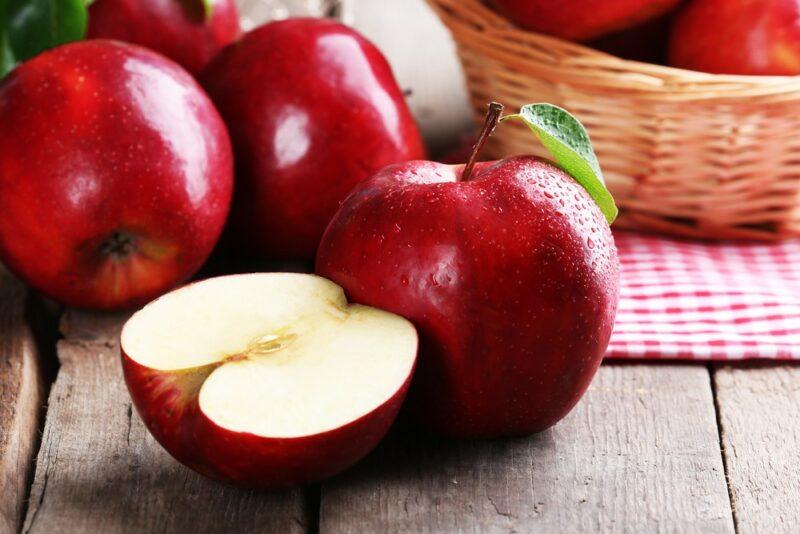
There’s no upper limit to apple consumption, but you’ll get the most benefits from one or two apples per day. More than this is likely to give you significant side effects from the fiber.
Besides, realistically, going beyond two apples per day isn’t likely to give you many extra benefits.
Should You Eat Apple Skin?
The skin or peel of your apple is incredibly nutritious. It contains more antioxidants than apple flesh, along with higher levels of vitamin C and vitamin A. In fact, the peel is essential if you’re trying to boost your antioxidant intake.
Most of the fiber is found in the peel as well – so you lose a lot if you skip the peel.
That said, the peel is also the most easily contaminated part of the apple and may have an added artificial wax to keep it looking good.
To keep yourself safe, it’s best to wash your apples carefully before eating them. Focusing on organic apples can help as well.
Which Types Of Apples Are Best?
There are plenty of apple varieties, all with their own flavors and textures. You probably already have your favorites, along with some types that you’re not that fond of.
There’s more to it than flavor and texture though. Different types of apples also vary in their nutrient and antioxidant content.
Not surprisingly, red apples contain more powerful plant-based compounds than green varieties. Research shows that Pink Lady apples are one of the healthiest types, offering more antioxidants and flavonoids than most other apple varieties.
Pink Lady apples are also trademarked, which should mean there’s less variation between them than with other apples.
Don’t worry if you prefer green apples to red ones. While green apples might not be as good for you, they’re still very powerful and help to keep you healthy.
Why Aren’t Apples Superfruits?
The labels superfoods and superfruits get thrown often these days. There’s an implication that superfoods are much more powerful than regular foods, offering more nutrients and antioxidants, while also having a greater effect on disease risk.
For the most part, though, superfoods and superfruits aren’t really a thing. The term is little more than marketing hype. This is why many of the so-called superfoods are unusual in some way, like pomegranates, goji berries, and matcha.
Yet, in practice, regular fruits and vegetables are often just as powerful as any superfood. They’re just not as exciting, so they don’t get the label.
This is what happens with apples. After all, they’re a common fruit that many of us find a little boring. Don’t worry though. Superfruit label or not, apples are still exceptionally good for you.
Final Thoughts
Apples are inexpensive, packed full of fiber, and are a decent source of antioxidants. It’s no wonder that they’re such a popular fruit.
The biggest problems with apples come from industry approaches, including the use of artificial wax and the presence of pesticide residues. Thankfully, both issues are easily avoided by looking for organic apples. These aren’t difficult to find, as there’s considerable demand for them.
You could also look locally. There may be some apple growers in your area that you could buy from. Shopping locally like this is best for the environment and your local economy anyway.
Frequently Asked Questions
Are Apples Acidic?
Yes. Apples have a pH of 3.5 or so (neutral is 7 and anything above 7 is alkaline). A pH of 3.5 means that apples are less acidic than citrus fruits, but more so than some other fruits.
Are Apples Keto?
You can include small servings of apples on a keto diet, but you certainly can’t have an entire apple. Seriously. Doing so might give you around 22 net grams of carbs, which is excessive.
Rather than keeping to small amounts of apple, why not skip the fruit entirely? There are plenty of lower carb fruits, including raspberries.
Do Apples Have Caffeine?
There’s this strange myth that apples have caffeine, but they don’t. There’s no caffeine at all.
However, apples do give you a jolt of energy. This energy hit comes from the sugar and some of the vitamins in the fruit, so it won’t affect you in the same way as caffeine.
Are Apples Good For Weight Loss?
Any type of fruit can help with weight loss. This is partly because the fiber is satisfying. You’re also getting plenty of nutrients and antioxidants, which can help your body to function efficiently.
And, despite their sugar content, apples are low in calories. This is helpful too, especially as processed snacks tend to be higher in calories and packed with concerning ingredients.
Are Apples Good For Your Teeth?
In theory, yes. Apple fiber has a toothbrush-like effect, helping to remove some plaque. Apples also aid in saliva production, which is helpful as well.
However, it’s still important to rinse your mouth out after eating apples, as you don’t want any sugar left resting on your teeth.







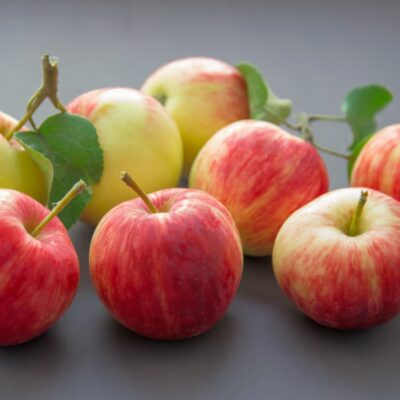


Leave a Reply